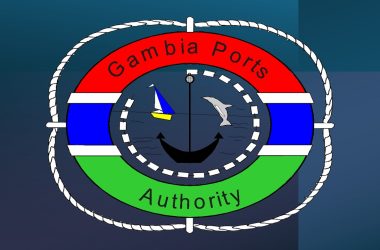The United Nations Population Fund (UNFPA) The Gambia today kicked off a two-day training for Gambian journalists on ethical reporting on rights of persons with disabilities and disability issues.
UNFPA has rolled out the training in line with its endeavour and effort to ensuring more inclusiveness and guaranteed equal rights.
The symposium was also geared towards strengthening the partnership and collaboration between The Gambia’s umbrella body for persons with disabilities – the Gambia Federation of the Disabled – and media entities in the country.
The chair of the Gambia Federation of the Disabled, Muhammed Krubally, said: “It has been realised that the media is an indispensable party in terms of recognition or knowing the fundamental rights of persons with disabilities, and it is realised that the media plays a crucial role in ensuring the wide dissemination of disability matters.”
Mr Krubally told the participants that the media is indeed powerful and fundamental in the sense that it could report any infringement of the rights of persons with disabilities.
“So because of this important role played by the media, it is prudent that the media personnel get informed, trained and capacitized on matters of persons with disabilities,” he said, adding that it is the media that portray disability issues in good or bad light.
“Since the media has this role to play and a responsibility to inform the society, we deem it fit that the media comes on board to be addressed on disability affairs and the fundamental rights of persons with disabilities, so that the training will help the said media in their reporting on how to address persons with disabilities and in discharging their roles and responsibilities in accordance with existing national and international legislation,” the Federation chair said.
He added: “Having said all this, we expect that all the media personnel present will indeed spare their valuable time to listen, participate, ask questions, and at the end of the day, we hope that all information pertaining to persons with disabilities accorded to the media will actually reach out to the public; that is, those who need to know.”
For the first phase (day) of the training, the media professionals were taken through, inter alia, the role of the media on disability issues and the legal framework surrounding disability rights and matter by Muhammed Krubally, a magistrate of Banjul Magistrate’s Court.
National Focal Person on Disability, Sainey Camara, took also the participants through the importance of awareness-raising in connection with the Convention on the Rights of Persons with Disabilities (CRPD), as well as the Persons with Disability Act.
According to the CRPD, persons with disabilities “include those who have long-term physical, mental, intellectual or sensory impairment which in interaction with various barriers may hinder their full and effective participation in society on an equal basis with others”.

Nearly one billion people – or 15 per cent of the world’s population – experience some form of disability during their lifetime, yet the discrimination and undermining of the most vulnerable remains a major concern.
Despite strides accomplished, prejudice and systemic discrimination against persons with disabilities continues to be a major concern and they often face extreme violations of their rights as human beings.
The training was, therefore, organised by UNFPA in line with the UN Disability Inclusion Strategy that was adopted by the Secretary General in 2019, which lays the foundation for sustainable and transformative progress on disability inclusion through all pillars of the work of the United Nations – peace and security, human rights, and development.




